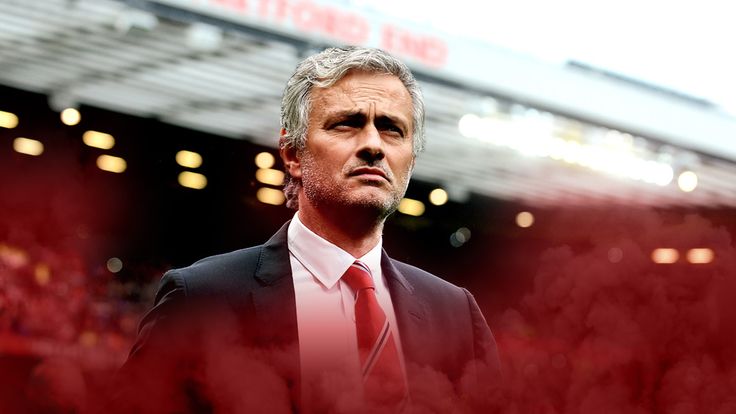
Wednesday 20 July 2016 12:15, UK
Worried about pre-season? We examine the past records of some of the top teams for evidence of whether summer form has any significance at all...
Jose Mourinho's words of a year ago have taken on added significance since. "Pre-season is fake, for good and for bad," he said, following Chelsea's 4-2 defeat to a second-string New York Red Bulls side. "If you're very bad, it's fake, and if you're too good, it's fake."
If Mourinho was hoping his Chelsea players would prove that result to be a one-off aberration, their subsequent struggles weren't the best way of proving the argument. They went on to produce the worst defence of the Premier League title ever seen.
The feeling was that Mourinho had planned a more low-key start to the season in order to peak later but with the benefit of hindsight, there were signs of unease that day. The coach allegedly reprimanded a member of staff for using their phone during the game.
The memory of the Stamford Bridge crowd chanting Eva Carneiro's name during another friendly against Fiorentina on the eve of the big kick-off now adds to the apparent foreboding. Most agree that the seeds of the subsequent problems were sown that summer.
And yet, pre-season can provide plenty of white noise too. A 3-0 defeat to Wolfsburg the previous summer offered no clue as to what was to follow. Chelsea promptly embarked on a 21-game unbeaten run as they marched to the Premier League title.
Indeed, the evidence for pre-season form mirroring what follows is mixed...
Arsenal
Lifting a trophy in a tournament laid on by your own sponsors in which you play at home and invite the other three teams at your discretion cannot be taken too seriously. However, failing to perform in those conditions might be an indication of problems.
Since the inaugural Emirates Cup in 2007, Arsenal have failed to finish in the top two of the tournament they host on three occasions. There were even boos for the team when denied by New York Red Bulls in 2011 and again when two goals down against Napoli in 2013.
Although Arsenal have been remarkably consistent in their Premier League finishes throughout this period, in each of these three seasons in which they struggled at the Emirates Cup, the team went on to lose one of their first two league matches.
In contrast, their most successful start during this time was the 2007/08 campaign in which Arsenal won 14 of their first 15 games. That summer, they won the Emirates Cup, with victory in the Amsterdam Tournament also adding to the feel-good factor.
Liverpool
The Gunners were actually still five points clear at the top of the Premier League in mid-February of that 2007/08 season before fading badly. Pre-season exertions? That wasn't a concern for the great Liverpool side of the 1980s, who knew how to ease their way into it.
Liverpool showed that conserving energy and building their way into a season might be a better approach - losing high-profile pre-season games ahead of each of their four European Cup winning seasons between 1977 and 1984.
In particular, Bob Paisley's team suffered the ignominy of coming last in the Rotterdam Tournament in 1983 - behind Hamburg, Standard Liege and Feyenoord - before going on to win their fourth European Cup the following May.
Manchester United
In contrast to that great Liverpool side, Manchester United's pre-season form under Louis van Gaal was impressive. United won all but one of their pre-season matches last summer, including a stand-out victory over then European champions Barcelona in California.
It was a similar story in his first season in charge when United won five of their six games - putting seven past Los Angeles Galaxy and beating Roma, Real Madrid, Valencia and Liverpool. Even their draw with Inter culminated in a penalty shoot-out victory.
However, Van Gaal lost his first game as United manager at home to Swansea and it proved a portent of things to come. Things began better the following year, but there was still an August defeat to the Swans and the promise of pre-season ultimately counted for very little.
Conclusion
Mourinho is right about extremes. A strong pre-season doesn't automatically lead to success and poor results are not necessarily cause for concern. But don't dismiss signs of trouble. The new United coach will certainly be hoping for a smoother summer this time around.